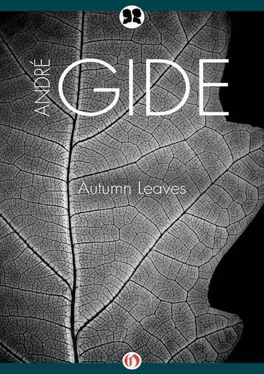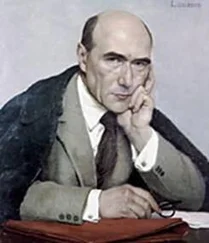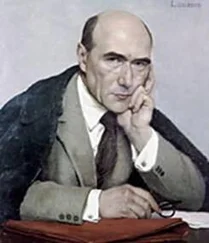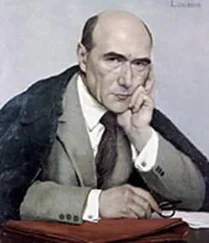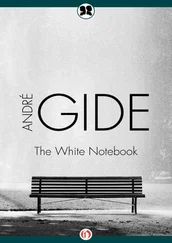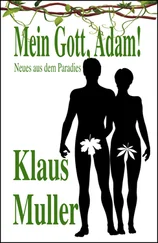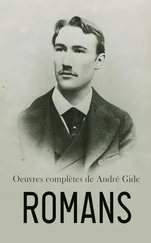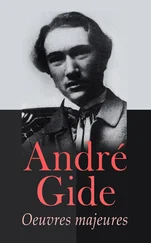Herbart and I had returned hurriedly from Moscow by plane, charged with the sad mission of breaking the news to his parents whose only son he was. Afraid they would learn of their loss through a notice in the papers, we had asked for and obtained the silence of the press; not a word of the sad news had as yet leaked out.
Eugène Dabit spoke to me often of his father and mother. He reproached me for not having gone to see them. In one conversation I had with him, he had made me promise to pay a visit to the Hotel du Nord, on my return to Paris. That visit, alas! it was as a messenger of death I made it.

1Up in the front of our automobile our interpreter, the comrade Bola, who had accompanied us faithfully from the beginning of our trip; who, soon after, was the only one authorized to go near the sick man; who, promoted to the position of nurse, showed herself perfectly devoted.
1I learn that since then he wrote: The Beautiful Sunday, a tale that appeared on August 18 in the Paris-Soir, in which that constant haunting by death reappears, and an article written on the occasion of Gorki’s death, recently published in Regards. The beautiful novelette of his: Night, published in Marianne on September 2, was written previously.
1I am thinking particularly of a report on one of Giono’s books, in regard to which he had expressed certain reserves.
1This passage is rather difficult to translate into English. The French word used is nager, pronounced by Dabit nâger, a pronunciation used by certain classes and in certain regions in France. Translator’s note.
1Centigrade. Translator’s note
NEWLY debarked from Belgium, he came to find me one morning eager to consult me on the subject of some notes for a class edition of Paludes that he was preparing for Hachette. He was perhaps a little malicious about it, but very little; for he generally kept back his laughter and seemed to fear his own mockery as much as that of others.
I don’t know how old he might have been; of such short stature that he could have been taken for a child if there had not been something very serious in his voice and something or other doctoral and settled in his appearance. His clean shaven face was dark complexioned, not sunburned but as though overcast. His features lighted up rarely and very little. His speech was extremely slow as were his gestures; it could have been said that he masticated his sentences; and anxious not to say anything he had not previously thought out, he hesitated a little before each word and only let go of all of it when he was ready.
He had read a great deal, and retained much; almost too much. However individual and deliberate might be the working of his mind, still one felt it a little weighed down by its stock of knowledge; so also his field of experiences somewhat obstructed by the constructions — the greater part half in ruins, it is true; but he had not had the time to tidy up the place sufficiently, although he applied himself to it as best he could, knowing very well that nothing is more cumbersome than a ruin.
He received nothing that he did not weigh, that he did not think out anew. Nothing was more touching than the conscientiousness, the patience and obstinacy of his mind; so fertile and of such good compost that everything he sowed or planted very quickly developed a pile of branches which he watched grow with amusement; he marvelled at their blossoms, delighted in their fruits, but took rest only for a few moments in their shade, so exigent was his zeal and so lively his curiosity.
The extreme slowness of his speech was the joy of certain collaborators of the Mercure, Jarry in particular, whose butt Beck immediately became. At some meeting or other when the coffee had been passed, Jarry could be heard exclaiming in his peculiar voice, in that artificial voice that spilled out the words like a machine, giving to each syllable, strong or weak, a mournful gleam and monotonous value:
“The little Beck is going to poi son him self because I have put poi son in his cup.”
Immediately the cup upset, for Beck was touchy, and that made him angry with himself, for he remained particularly anxious to show that he was not afraid.
I recall a certain evening in Mid-Lent. The Mercure staff had dined at the Taverne du Panthéon. When I entered the room reserved, the meal was ending. It was a sort of banquet. Ferdinand Hérold, with his downy beard, was giving a toast to Camille Mauclair. Jarry, who treated himself well, had, before everybody, drunk a full glass of pure absinth, with the result that we were only half reassured when he was heard announcing in his colorless voice:
“And now we are going to kill the little Beck.”
They thought, of course, it was in fun; but with old Ubu, could one ever know? Jarry pulled a revolver out of his pocket. Then Beck, brazening it out, got up on a chair and, offering himself to the bullet, assumed a Napoleonic pose. Someone had the presence of mind to turn off the switch. The shot went blind.… When they turned on the lights again, Christian Beck still held his pose, as though turned to stone. The pistol was charged with a blank; but one of the guests (I don’t remember who) complained of having received the plug in his eye. He kept repeating:
“No, no, it’s nothing … but jokes like that … it’s ridiculous!..”
Many other things happened that evening. But let us return to Christian Beck.
Beck was always worrying about what might be thought of him, and what they could be saying about him the moment his back was turned. It was, doubtless, a weakness but so naive and admitted that it became almost amusing; he joked with me:
“I left them,” he said, speaking of a literary meeting, “so as to allow them to talk about me. But I’m not sure they’re doing it.… Perhaps I would have done better to stay,” he added slowly. “Suppose I go back? What do you think?…”
I stopped seeing him for a while. He had fallen ill and was treating himself in Italy. I could not take this illness seriously. Tuberculosis, he said. If I knew him, he would get the best of it, that was certain. Patience, method and resolution; what more could you ask? He had them all. He was not very wealthy, but neither was he destitute, and over there, life was not dear. He invited me to come to see him at Sorrento. I did. I think he was coming from Capri. We met at Naples on the quay. I would scarcely have known him. Hadn’t he grown a beard! His cordiality, easier and less studied than in Paris, was charming. He spoke to me of his health, of his reading, and of numerous projects.
The inn to which we had gone had only one double room to offer us. Beck asked me if it would disturb me to have the window left open; that was my habit, too.
“But I’m afraid of the humidity,” he said.
And astounded, I saw him pick up and carry into the corridor the bucket, water pitcher and toilet pail from which the cover was missing. Alas! we were no sooner in bed than it began to pour, and did not stop all night.
The news of his death surprised me greatly and grieved me very much. His was a mind very much alive that promised to have much to say, and I didn’t think it possible that he would leave us almost without having spoken.
IN the back of the auditorium — of that dear old auditorium of the Vieux Colombier that could seat about three hundred persons — there were a half dozen rowdies come to the meeting in hopes of having some fun. Oh! I believe they would have gotten themselves locked up by Artaud’s warm friends scattered about the auditorium. But no; after one very timid attempt at rowdyism, there was no call to interfere.… We were present at a stupendous spectacle; Artaud triumphed, turning mockery and insolent nonsense into respect; he dominated.…
Читать дальше
